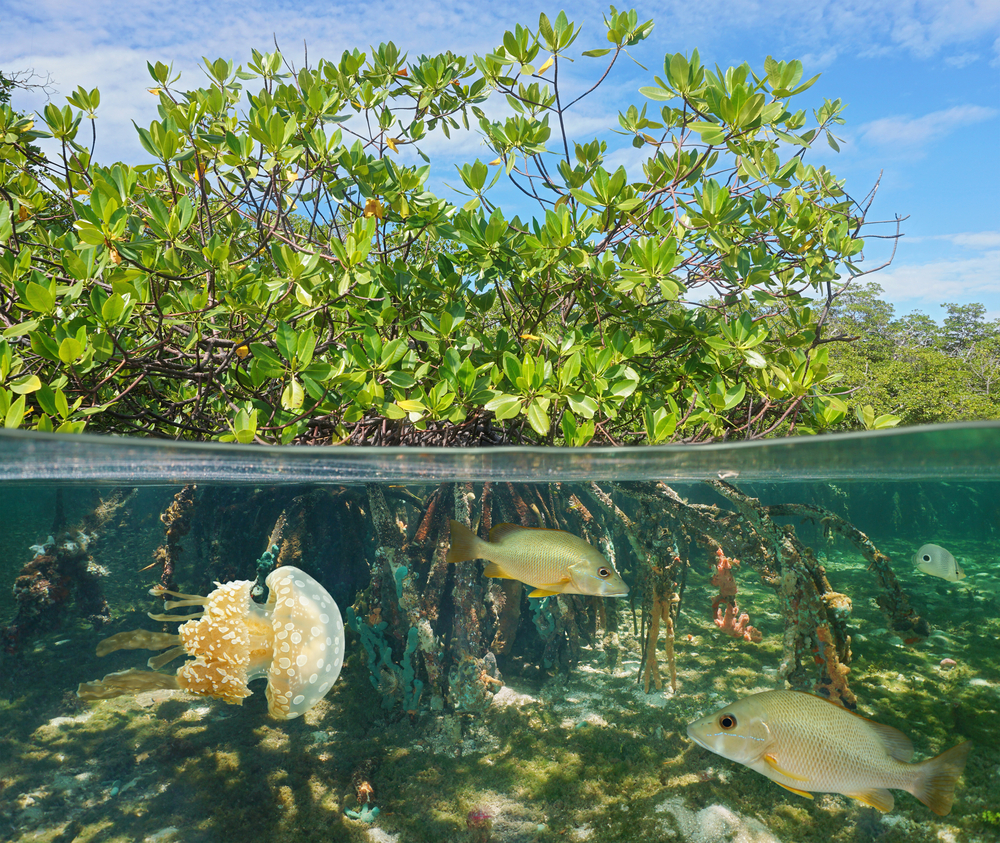Providing solutions to climate change

An international team of experts, including KAUST Professor Carlos Duarte, recently published work detailing evidence of a combination of marine-based solutions to climate change. File photo.
-By Alexander Buxton, KAUST News
An international team of world-leading experts in marine science, geo-engineering and climate change modelling has found evidence that a combination of marine-based solutions to climate change could significantly reduce the problem while enhancing conservation of marine ecosystems.
So far, efforts to combat climate change and its impacts have largely focused on land-based actions, while relatively little attention has been paid to ocean-based potential. The ocean already removes about 25 percent of anthropogenic CO2 emissions and has the potential to remove and store much more.
"Ocean-based actions could significantly reduce the magnitude and rate of ocean warming, ocean acidification [and] sea level rise as well as their impacts on marine ecosystems and ecosystem services," stated Carlos Duarte, KAUST professor of marine science from the University's Red Sea Research Center (RSRC). "They could also play a significant role in helping to reduce global warming and its impacts on the non-ocean surface of the planet and on human society."
"However there may be associated risks to ocean life and people, and there is a lack of guidance for prioritizing ocean-based interventions since there has been relatively little research, development and deployment in this field—our research is changing that," Duarte continued.
The scientists assessed the effectiveness of 13 measures offered by the ocean to combat global warming. The solutions assessed include: reduction of atmospheric greenhouse gas concentrations; solar radiation management; protection of biota and ecosystems; and manipulation of biological and ecological adaptation.

In the research paper, the scientists assessed the effectiveness of 13 measures offered by the ocean to combat global warming. File photo.
The researchers assessed the potential of ocean-based measures or schemes to reduce climate-related drivers as well as to reduce adverse impacts on marine ecosystems. Research into understanding the role, pressures, functioning and response to pressures of the global ocean is a key area of study within the RSRC. The study, which was published in Frontiers in Marine Science, will inform decision makers who are set to meet in December at COP24 in Katowice, Poland.
In order to protect future generations from the adverse effects of ocean warming, ocean acidification and sea level rise, the study recommends specific action: developing renewable energies; conserving and restoring marine plants which fix and store CO2; creating marine protected areas; reducing pollution; limiting over-exploitation of resources; protecting the ocean against solar radiation by increasing the reflecting capacity of clouds or of the ocean surface; and direct interventions to increase biological and ecological adaptation of marine plants and animals, such as by relocalizing species.

The study recommends several specific actions to protect future generations from the adverse effects of global warming. File photo.
To read the full paper, visit http://bit.ly/2MVx4pm.
Related stories:
-
Finding Nemo's genes
-
Dr. Roberto Arrigoni awarded Benazzi Lentati prize
-
Saving the world's oceans
-
Reef corals have endured since the 'age of dinosaurs' and may survive global warming
-
The internet of sea things

